VAT Rate in The Netherlands

How much is VAT in The Netherlands?
The standard VAT rate in The Netherlands is 21% and applies to most goods and services. The reduced rate is 9% and applies to some foodstuffs, some medical products and equipment for the disabled, books, newspapers, admission to cultural and sports events, the hospitality sector, clothing and shoes.
Dutch zero-rated goods and services include taxation of gold coins, passenger transport by air and sea. The sale of items in this category must still be reported on your VAT return, even though no VAT is charged.
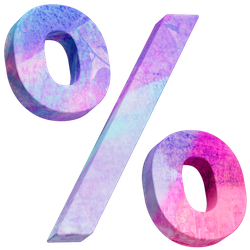
What is a VAT rate?
VAT (value added tax) is a type of consumption tax. The Dutch government applies it on the sale of goods and services.
VAT isn’t paid by businesses — instead, it’s charged to consumers in the price of goods, and collected by businesses, making it an indirect tax. Businesses are then responsible for reporting it to the government.

How to work out VAT in The Netherlands.
Total price including VAT
To work out the total price at the standard rate of VAT (21%), multiply the original price by 1.21. For the reduced VAT rate (9%), multiply the original price by 1.09.
Total price excluding VAT
You can calculate the total price excluding the standard VAT rate (21%) by dividing the original price by 1.21. For the reduced VAT rate (9%), divide the original price by 1.09.
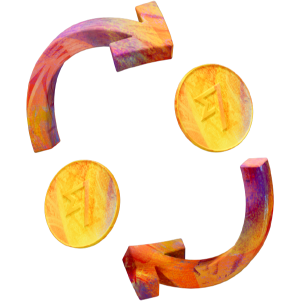
VAT for businesses.
If you’re running a business, there are a few things you should know about VAT.
Importing goods from abroad? Find a cheaper alternative.
If you are interested in how to calculate VAT – Calculate your VAT here.

Wise is the cheaper way to send money abroad.
Exporting or importing goods from abroad? With Wise Business, you can get a better deal for paying invoices and buying goods overseas. We’ll always give you the same rate you see on Google, combined with our low, upfront fee — so you’ll never have to worry about getting an unfair exchange rate.
And with the Wise Business debit card, you can spend like a local, wherever you are..
Learn more about Wise Business.
Sign up now for free, and do business without borders.
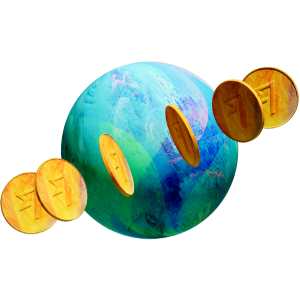
How does VAT work?
VAT is collected at each point in the production of goods — every time value is added and a sale is made. This is what gives VAT its name — value-added tax. It’s designed to be paid by the consumer at the end. Here’s an example:
- A supplier sells a badminton racket to a shop for €120. They owe €20 VAT to the government.
- The shop pays €120 but can claim the €20 back from the government, so the shop doesn’t pay the VAT.
- The shop sells the racket to the customer for €220. The VAT is €44 which the customer, as the end-user, pays in full to the shop.
- Together with the reclaimable €20 VAT, the shop will end up paying €24 to the government.
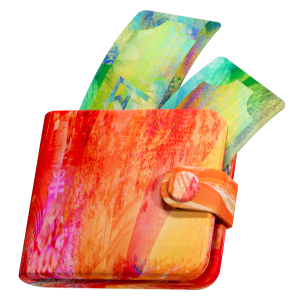
Tax-free shopping - VAT for travellers.
So, you’ve done some shopping abroad, and paid a healthy amount of money for VAT. The good thing is you can often get the amount refunded once you’ve returned home.
For example, European Union residents can get a VAT refund on goods bought in Singapore from a retailer that offers tax-free shopping.
The conditions for a VAT refund are different in every country and should be checked according to your destination — there’s usually a minimum purchase amount, and some exceptions to be considered.
If you’re planning on visiting any of these countries, have a look at their rules for tax-free shopping. And if you’d like to save even more money, don’t miss out on the Wise travel money card, and spend in shops or online at the real exchange rate.
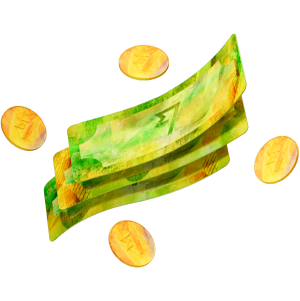
VAT Refund.
When you’ve visited The Netherlands, you’ll be able to get a VAT refund on items bought if:
- You live outside the EU and are going back home.
- You’re an EU resident and are leaving the EU for 12 months or more.
- You’ve spent a minimum of 50€ in any tax-free store the same day.
There are multiple ways of receiving the refund — either get paid immediately at a refund booth at the airport or send the approved form to a refund company.

How to get a VAT refund in 3 simple steps?

Application form
Get a Tax Refund Application Form from the retailer. You might also be asked to show your passport to check that you’re eligible.

Customs check
At customs, present your passport, VAT form(s), VAT invoice(s) and the tax-free goods.

Refund approved
If all the criteria is met, customs will approve your form. You’ll get a signed form that allows you to receive the refund.